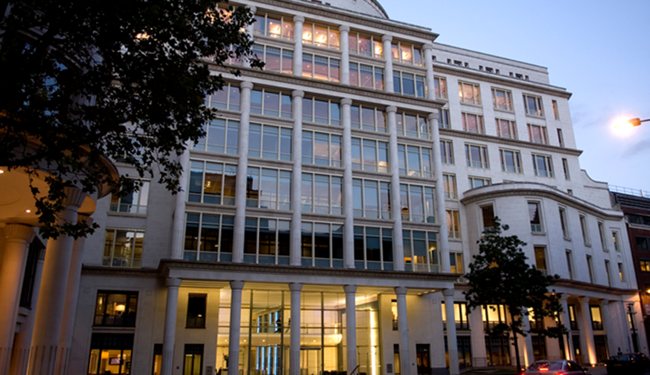Like most people, you’re probably glad that 2014 has passed. From Ebola scares to plane crashes to police shootings, the world seemed to be coming apart. And we could only helplessly wait and watch.
In business education, 2014 wasn’t the year for grand themes and alarming headlines. On the surface, the industry seemed almost tranquil. But it masked a fierce undertow. As sponsorships and enrollments have slipped, EMBA programs have battled to remain relevant (and solvent). As the economy continues to rev and sputter, students wonder if an MBA is really the ticket to moving up or changing careers. And schools continue to wrestle with growing demands of executive and online students, adding new degrees, activities, and career services capabilities.
In the end, globalization and technology are re-shaping education. Hybrid models are freeing distance students to work more closely with peers and instructors than ever before. And a rising emphasis on global immersion is forcing business schools to devote more resources to cultural understanding and soft skills.
And those were just some of the biggest themes running through Poets&Quants for Execs in 2014. From ageless wonders to military-style training for MBAs, here were our most influential stories of 2014.
1) P&Q’s 2014 Ranking of the Top EMBA Programs: Wharton or Booth? Traditionally, these schools are lumped together for being the finest finance schools. But they also have a reputation for offering the best executive MBA programs. In our 2013 rankings, Wharton edged Booth to earn the number one spot. In 2014, Booth returned the favor, ranking number one based on Poets&Quants’ composited metrics from the Bloomberg Businessweek, U.S. News & World Report, Financial Times, and The Economist rankings.
So why are the best-and-brightest flocking to Booth? In an era of inflated grades and dumbed down curriculum, Booth has managed to make their 21-month EMBA program even more rigorous, adding a capstone course to better pull together everything students have learned. While some schools are cutting back, Booth is beefing up its electives, global exchange program, and leadership offerings.
At the same time, international schools left their mark in 2014, with IE Business School, IESE, and IMD jumping 10, 18, and 21 spots respectively over the previous year. At the same time, American stalwarts like Notre Dame and NYU climbed 11 and 19 spots. How did your favorite program perform? Check out Poets&Quants’ exclusive ranking of the top 50 EMBA programs.
(Editor’s Note: This year’s rankings excluded joint EMBA programs. For that ranking, click here).
2) The Worst Things EMBAs Say About Their Experiences: “Lazy classmates.” “Understaffed career centers.” “Chilly classrooms.” You won’t find such information on a school website, let alone from an admissions rep. Chances are, those derelictions aren’t factored into school rankings either. That’s why Bloomberg Businessweek surveys new EMBA graduates about their experiences. Written as open-ended comments, these responses can give you an inside look at what to expect from particular programs. Here’s just a sample:
“I would have appreciated a little more time dedicated to helping us figure out what other career paths existed. Many of us were actually looking to switch careers and it didn’t seem like the school was prepared for that.”
– Columbia Business School
“The program should be directed at mature students. A major revision of the team system is required. Stop using junior/adjunct professors to such a large degree. Don’t grade the soft courses. Listen to the students when they are sending a consistent message. Use more stringent admissions criteria.”
– Duke University Fuqua School of Business
Wondering if Wharton, Ross, IESE, Columbia, Fuqua, Stern, Marshall, and Rutgers really deliver the goods? Decide for yourself by reading the most critical comments that these graduates make about their EMBA programs.
3) You’re Never Too Old For Business School: Do you ever think that an MBA won’t make a difference after you hit the big 4-0. Don’t tell that to Jim Schmitz, who just graduated from the London Business School at 62.
A former heart doctor, Schmitz sold his house and launched a new career when his peers were easing up and moving to Arizona. As it turns out, business school was among Schmitz’s toughest challenges (and that’s coming from med school grad who managed a clinic). So how is Schmitz using his degree – and should we expect business schools to start graying? Check out Schmitz’s story here. At the same time, find out why one 28 year-old is foregoing the full-time route to enroll in Wharton’s executive MBA instead.









Questions about this article? Email us or leave a comment below.